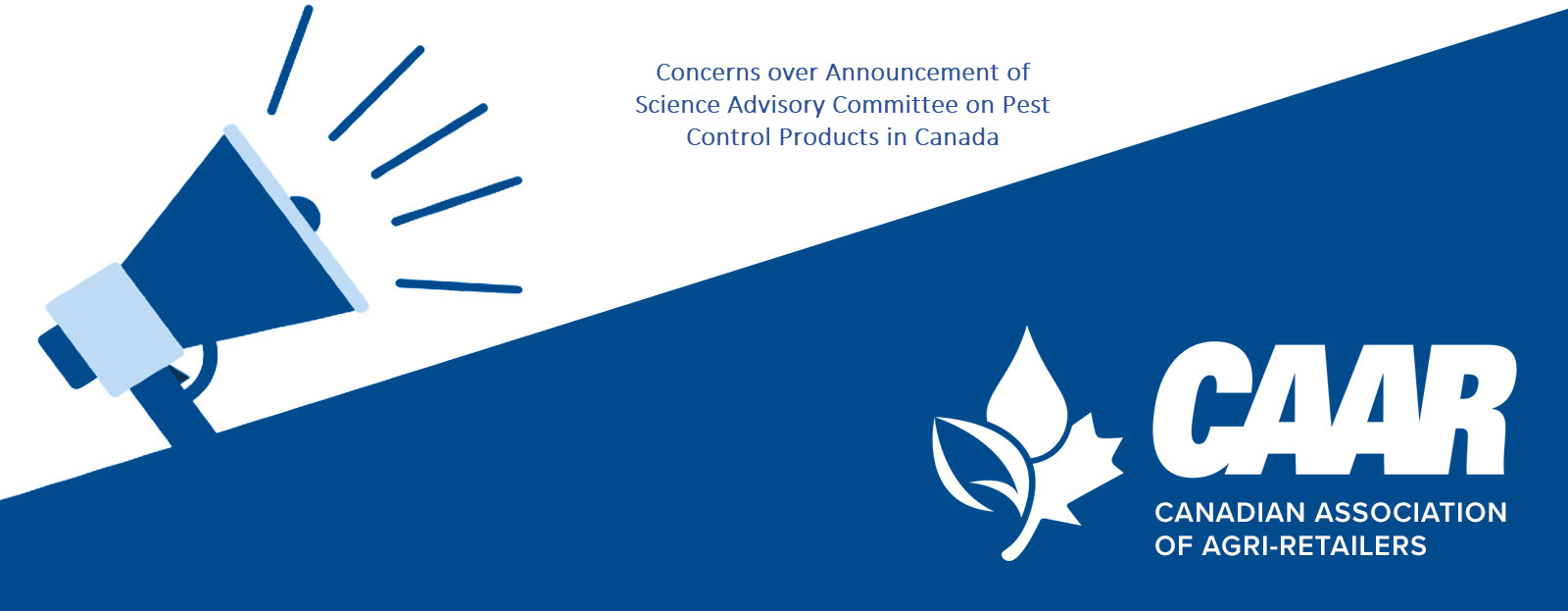The Honourable Jean-Yves Duclos, Minister of Health recently announced that the government will be forming a new Science Advisory Committee on Pest Control Products in Canada. The Committee will provide scientific advice, as appropriate, prior to certain evidence-based federal decisions on pesticides, including on pesticide Maximum Residue Limits (MRLs).
What impact will this have for agriculture? How will this impact pesticide registrations and reviews?
This new committee as well as the agriculture industry’s response will be discussed as part of the MRL panel discussion that includes Gord Kurbis, Canada Grains Council, Terri Stewart, Crop Life Canada, and senior representative from the PMRA during the upcoming 2022 CAAR Virtual Conference.
CAAR and many of its partners believe that the committee’s mandate is too broad, reaching beyond scientific questions, and could contradict and undermine the PMRA’s expertise on matters that have already been concluded by the PMRA.
With the establishment of the new Committee, Health Canada’s Pest Management Regulatory Agency (PMRA) is seeking nominations of experts with a wide range of relevant knowledge and experience with pesticide use in Canada, environmental fate and modelling, health and environmental risk assessment and pesticide value assessment.
CAAR members are encouraged to review the Announcement details, Call for Nominations, and the proposed Terms of Reference, and consider whether anyone within your network would be interested in serving as a member of the committee, and ensuring that the voice of the agriculture industry is properly represented.
Interested individuals must apply online by March 11th, 2022. CAAR will work with similar minded agriculture organization to ensure Committee candidates are adequately grounded in science and agriculture practices to avoid conflicts of interest and recommendations to the detriment of Canadian agriculture production and export competitiveness.
CAAR and its partners remind the government that PMRA is considered a world leader in science-based pesticide regulation. Stakeholders remain concerned that the political context in which the panel was announced suggests Canada is moving away from its science-based approach.
CAAR and its partners are concerned the panel has the potential to have unintended, long-term consequences on agriculture. Current PMRA processes already provide opportunity for engagement with experts in regulatory decision making.
CAAR and its partners support PMRA that a science advisory committee should provide advice solely on matters that the PMRA determines as areas of scientific uncertainty. Scientific value could be added to the PMRA’s review process if the committee is strictly limited to this role.
For more information or to discuss concerns related to the establishment of the committee, please contact CAAR's Executive Director This email address is being protected from spambots. You need JavaScript enabled to view it. or (204) 989 9303.
Related Articles
- Potential El Niño Impact on 2024 Following three consecutive years of La Niña, the El Niño-Southern Oscillation (ENSO) is currently in the El Niño phase, according to NOAA. The ongoing El Niño is forecast to be an intense event, reaching its maxi...
- Perception gaps exist between farmers and consumers Research by Nutrien identifies key differences and similarities in agricultural views between farmers and North American consumers. In recent research by Nutrien Ltd, "Bridging the Agricultural Perception Divide,"...
- Committee report praises Canadian agricultural eco-practices Canadian farmers are at the forefront of merging agricultural productivity with environmental conservation, as highlighted in a recent report to the House of Commons. "Stewards of the Land: Examining Canadian Agri...
- PMRA modifies study submission protocol for pesticides The PMRA announced that it has unveiled a new tiered approach for higher priority pesticide re-evaluations, altering previous executive summary requirements for study submissions. The Pest Management Regulatory Ag...
- New drone pesticide application rules unveiled Updated regulations now define how drones or RPAS should be used for pesticide application, emphasizing the importance of label indications. There’s a vital update on the usage of Remotely Piloted Aircraft Systems...
 How to resolve AdBlock issue?
How to resolve AdBlock issue? 


Join the discussion...
You must be logged in as a CAAR member to comment.
Report
My comments